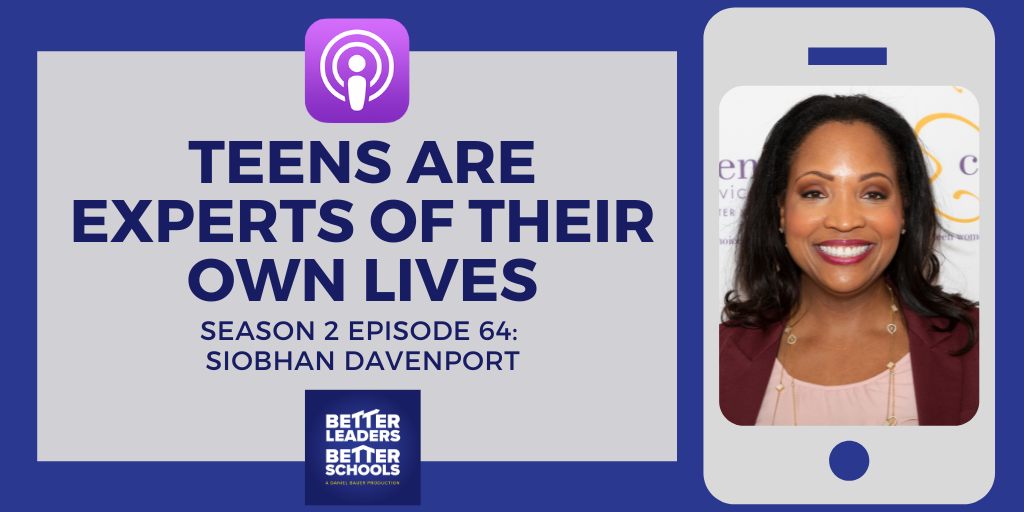Siobhan Davenport is the President & CEO of Crittenton Services of Greater Washington (CSGW). CSGW works in conjunction with schools to close education and achievement gaps for teen girls to feel empowered through a whole-child, whole-community curriculum. In her previous role as Crittenton’s Director of Strategic Partnerships, she built collaborations between schools, nonprofits, and corporations to better meet Crittenton girls’ challenges and launched the Declare Equity for Girls: It’s Time campaign. Siobhan is an inspiration– the daughter of teen parents who has defied every statistic and now leads a nonprofit empowering younger versions of herself. Additionally, Siobhan serves as a commissioner for the Maryland Governor’s Commission on Service and Volunteerism and sits on the Advisory Council for Ascend at the Aspen Institute. Siobhan holds a master’s degree in journalism from American University.
[fusebox_transcript]
Show Highlights
- Understanding barriers that girls face and teaching action advocacy.
- Creating safe space and suspending judgment as an intentional move as an organization.
- The key to building world class culture with one question.
- Reflection for leaders to help navigate and engage at school and at home.
- Serve the whole child by suspending judgment with specific staff training.
- Evolution of a sacred sister circle-hood. “Meet girls where they are, but don’t let them stay there.”

“Let Teens Lead. As adults, we have wonderful experiences in our lives and we get to a point where we say, ‘Do this, do that, do the other.’ We forget that teens are the experts in their own lives. They come with so much experience and they know what they need, and we can be a support to them and get the services that they need.”
– Siobhan Davenport
Siobhan Davenport’s Resources & Contact Info:
Looking for more?
SHOW SPONSORS:
HARVARD GRADUATE SCHOOL OF EDUCATION
Transform how you lead to become a resilient and empowered change agent with Harvard’s online Certificate in School Management and Leadership. Grow your professional network with a global cohort of fellow school leaders as you collaborate in case studies bridging the fields of education and business. Apply today at http://hgse.me/leader.
School leaders know that productive student talk drives student learning, but the average teacher talks 75% of class time! TeachFX is changing that with a “Fitbit for teachers” that automatically measures student engagement and gives teachers feedback about what they could do differently.
Learn more about the TeachFX app and get a special 20% discount for your school or district by visiting teachfx.com/blbs.
Organized Binder is the missing piece in many classrooms. Many teachers are great with the main content of the lesson. Organized Binder helps with powerful introductions, savvy transitions, and memorable lesson closings. Your students will grow their executive functioning skills (and as a bonus), your teachers will become more organized too. Help your students and staff level up with Organized Binder.
Copyright © 2021 Twelve Practices LLC


